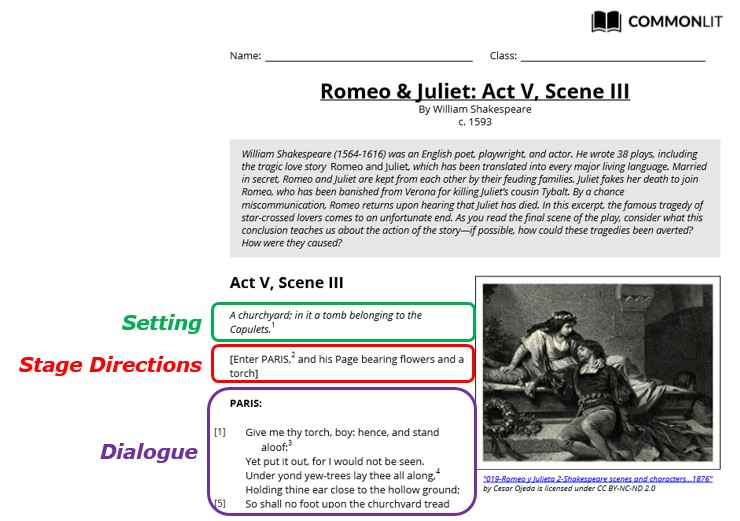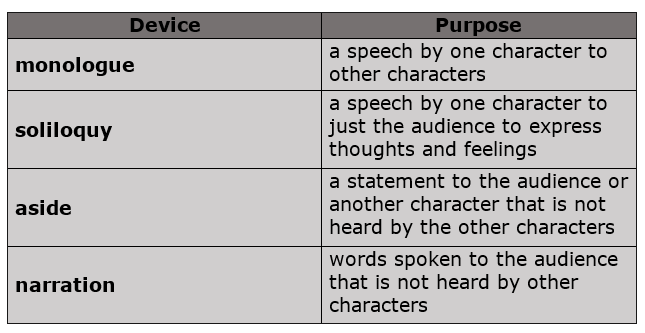Drama
*Download the attached pdf to take notes during the lesson.

READING FOR THE STATE ASSESSMENT
On the end of year assessment for English Language Arts, you will be asked to read several different passages and answer questions based on those passages. The following units will review some of types of texts you will be asked to read and some of the types of questions you will be asked to answer.
Drama
*Download the attached pdf to take notes during the lesson. 
A drama is a story written to be performed by actors. Like other types of fiction, dramas have a setting, plot, characters, and theme. However, most of the story is told through the characters’ words. What makes a drama different is how these components are presented. A written drama has a specific structure with elements arranged in a certain way.


Literary Elements
The setting is the time and place of a story. A setting helps set the mood, or general atmosphere of a drama. For example, a Christmas morning setting during the Great Depression suggests a somber mood, while one set in the present day may be cheerful.
Just like in other fiction and in poetry, the theme is the central message that the author wants to convey. It may be a statement about life or the way the world works.
Irony
Irony is a contrast between what is expected and what actually happens. It is a tool authors use to create suspense or humor in a play. Dramatic irony is created when the audience knows more than one or more of the characters. Verbal irony is when a character says the opposite of what he or she really means. Depending on the context, its humor can be playful or sarcastic. Situational irony involves the actual outcome being much different from the outcome that was expected.
Dramatic Devices
An author can use several devices to help an audience understand a character’s point of view and explore his or her thoughts and feelings.

The rest of this unit will be based around Romeo and Juliet by William Shakespeare.
Excerpts from Romeo and Juliet
Prologue
Read the prologue as you follow along with the video.
Now read the Excerpt from Act II, Scene II as you follow along with the video.
Remember, a theme is a main idea or an underlying meaning of a literary work.
The prologue comes before the play and is said by the chorus (a type of narrator).
Remember: A monologue is a speech by one character to other characters. This monologue is unique because Juliet does not realize that Romeo is present for her speech.
Remember: Figurative language is often used to compare a person, place, thing, or idea to something with which the reader is already familiar.
Click here for more practice reading and answering questions based on a Drama.